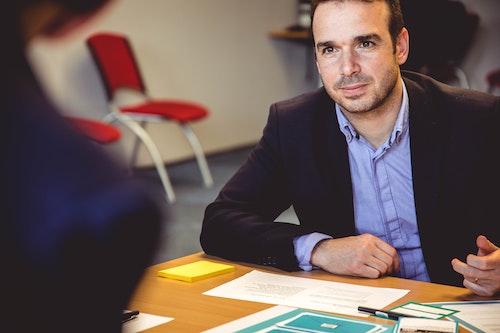In exploring the intersection of Christianity and economics, we routinely see several tensions come into play, particularly between notions of generosity and personal profit. The key question is: How do we reconcile our calling to be both a selfless servant and a maker and multiplier?
In a new talk from the Economic Wisdom Project’s latest Karam Forum, Greg Forster encourages us to find the answer in the particular paradox of the Christian life. Drawing from Mathetes’ ancient Letter to Diognetus, Forster argues that we are to be both “good citizens” and “good strangers”—being “content with poverty” even as we work to “make everyone rich.”
“We can use these ancient paradoxes … to bring life to the world in the modern economy,” Forster explains. “Christians accept the duties of citizens and the penalties of foreigners. If we want to bring life to the world, we must be good citizens and good strangers.”
To demonstrate how this might actually work, he offers three distinct examples of leaders who navigated these tensions well, including factory owner Josiah Wedgwood’s humane management practices, banker/realtor Robert Lavelle’s barrier-breaking entrepreneurship, and CEO Don Flow’s approach to customer service as love of neighbor.
In each example, we see not only the transformation of individual enterprises but also a wider range of “economic ripple effects.” In the case of Wedgwood, his innovative approach to factory management led many others to follow suit, not only to better support and empower workers, but also to be more competitive, innovative, and productive in serving customers.
“The Bell Works blew the doors off all other factories. It was more productive because it was more humane, and it was more humane because it was more productive,” Forster explains. “Wedgwood didn’t just reinvent his factories; he reinvented all factories, because other factory owners wanted their factories to be as productive as the Bell Works, and workers themselves began to demand changes, with support from churches … That economic ripple effect transformed the Industrial Revolution.”
For Lavelle, it looked a bit different. As an African-American realtor and banker during segregation, he worked to support and improve access to loans among black Americans in Pittsburgh, taking risks others wouldn’t take and building extensive community partnerships. The effects stretched far wider than his personal list of clients. “He fought against legal barriers and expanded opportunity to clean up the mess those barriers created,” Forster explains. “These services don’t just help people own homes, but get jobs, start businesses, hold police and government accountable as property taxpayers, and bring flourishing to their communities through the work of their own hands.”
Across these stories, we see a profound mix of generosity, humane treatment, and dedication to employees and customers alike—oriented around serving neighbors, but also creating wealth and growing enterprises. We see an embrace of economic exchange and creative service, but with a focus on the transcendent before and beyond any economic outputs.
In the fruit that follows, we see the tangible embodiment of that basic Christian paradox: “Whoever would save his life will lose it, but whoever loses his life for My sake will find it.” These are business leaders who were willing to put their own lives and livelihoods on the line for the flourishing of others, and everyone succeeded as a result.
“If we want to bring life to the world, we must surrender our wealth but never our neighbor’s wealth creation,” Forster continues. “Being a poor wealth creator is a paradox, but it is a biblical paradox … God blesses His people with this dangerous wealth.”
Although the church is often tempted to drift into one ditch or another—elevating “generosity” at the expense of “wealth creation” and “personal profit,” or vise-versa—we were called to weave the two together. As citizen-strangers in the modern economy, we can dwell in a more mysterious tension, matching abundant generosity with economic growth—loving our neighbors and restoring creation all along the way.
(Photo credit: Public domain.)

